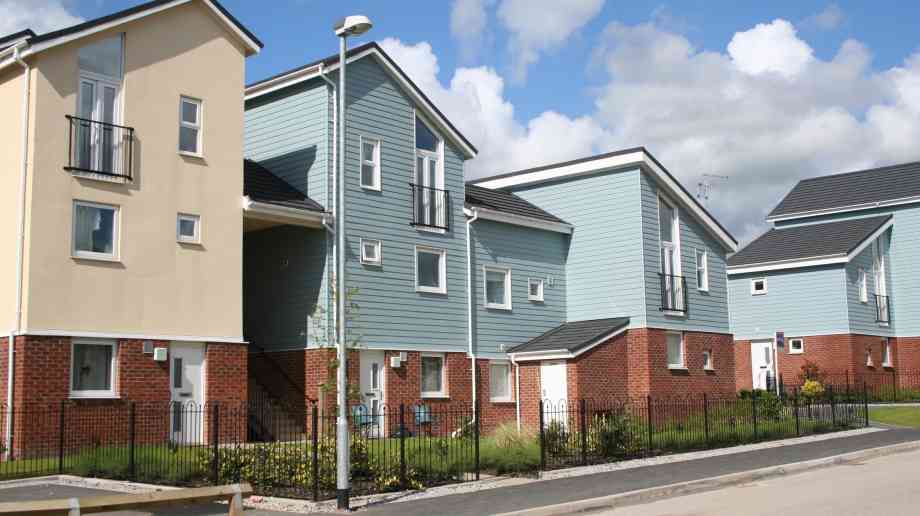Sue Robb of 4Children talks to Julie Laughton and Alison Britton from the Department for Education about the role of childminders in delivering the 30 hours free entitlement.
MPs warn that new housing target is in jeopardy

The Public Accounts Committee has claimed that the government lacks a clear plan explaining how they will meet their highly ambitious 300,000 new homes a year target.
The government has an ambitious target of delivering 300,000 new homes per year by the mid-2020s, but MPs are warning that inherent problems at the heart of the housing planning system are likely to jeopardise this target. If the government delivers 300,000 new homes per year, this would be a significant increase in the rate of house building, with the number built a year averaging only 177,000 in the period 2005-06 to 2017-18.
While the Ministry of Housing, Communities and Local Government has made some recent reforms to the planning system, the PAC says that much more needs to be done and it still does not have a detailed implementation plan for how it will scale-up house building.
Local authorities are struggling to produce local plans showing how many, where and what types of new homes are needed in their areas, and fewer than half of authorities have an up-to-date local plan, and the Ministry of Housing, Communities and Local Government is reluctant to take decisive action.
The PAC says the government should set out the full set of actions it is taking to achieve the target of 300,000 new homes by October, including year-on-year projections for the number of new homes it expects to be built. By the end of the year, the government should detail what additional interventions it will make when local authorities fail to produce local plans. These interventions should include a range of ‘carrot and stick’ measures of support and penalties.
Meg Hillier, chair of the committee, said: “Progress against the government’s annual new house building target is way off track and currently shows scant chance of being achieved. The government has set itself the highly ambitious target of building 300,000 homes a year by the mid 2020s – levels not seen since World War two - even though there is no clear rationale for this figure and the Ministry themselves say only 265,000 new homes a year are needed.
“Government needs to get a grip and set out a clear plan if it is not to jeopardise these ambitions. Poor performance by the Planning Inspectorate in reviewing appeals has also added to delays. There is also a collective failure to ensure developers contribute fairly for infrastructure."
Martin Tett, housing spokesman at the Local Government Association, said: “The last time the country built more than 300,000 homes a year was 1977/78, when councils built 44 per cent of them. Latest figures show councils were only able to build 2,000 homes last year – the highest level since 1992 – but need to be able to do so much more. To help end the housing crisis, we need to kick-start a genuine renaissance in council house building.
“The government now needs to go further in the Spending Review by devolving Right to Buy so councils retain 100 per cent of their receipts and can set discounts locally, and allowing councils to set their own planning fees. The planning system is not a barrier to housebuilding – with councils approving nine in 10 applications, and hundreds of thousands of homes given planning permission but yet to be built.
“Councils are committed to building the homes that communities need and that are appropriate for the local environment. Local plans underpin the local democratic planning process and involve significant engagement and building of trust with a range of local partners and the community. However, they can be difficult and expensive to establish. Government needs to make it easier for councils to get up-to-date plans in place, by giving them sufficient funding and resources, and scrapping the policies, including permitted development rights, which allow developers to ignore community needs and undermine local plans.”
Company Focus
Located in Bromley, Japanese Knotweed Eradication Ltd has been providing solutions in the treatment and removal of Japanese Knotweed (Fallopia Japonica) for over a decade. During this time we have mastered a repertoire of methods, from herbicidal treatments to landscaping solutions, tailored to address the unique challenges our clients face with this pervasive weed.
Event Diary
UKREiiF has quickly become a must-attend in the industry calendar for Government departments and local authorities.
The multi-award-winning UK Construction Week (UKCW), is the UK’s biggest trade event for the built environment that connects the whole supply chain to be the catalyst for growth and positive change in the industry.
Supplier Profiles
Geo Energy
At GeoEnergy Design, we're on a mission to disrupt the traditional way heating and cooling ha
Latest Features
Professor Harith Alani, director of the Knowledge Management Institute at the Open University explains how AI can be used for good and bad.
Alex Lawrence, head of health & social care, techUK sets out techUK’s Five Point Plan for CareTech.

















